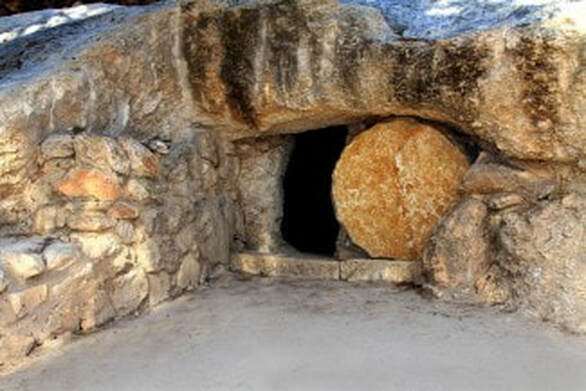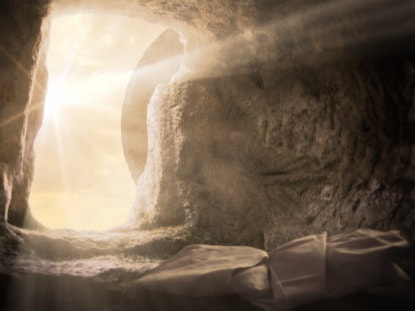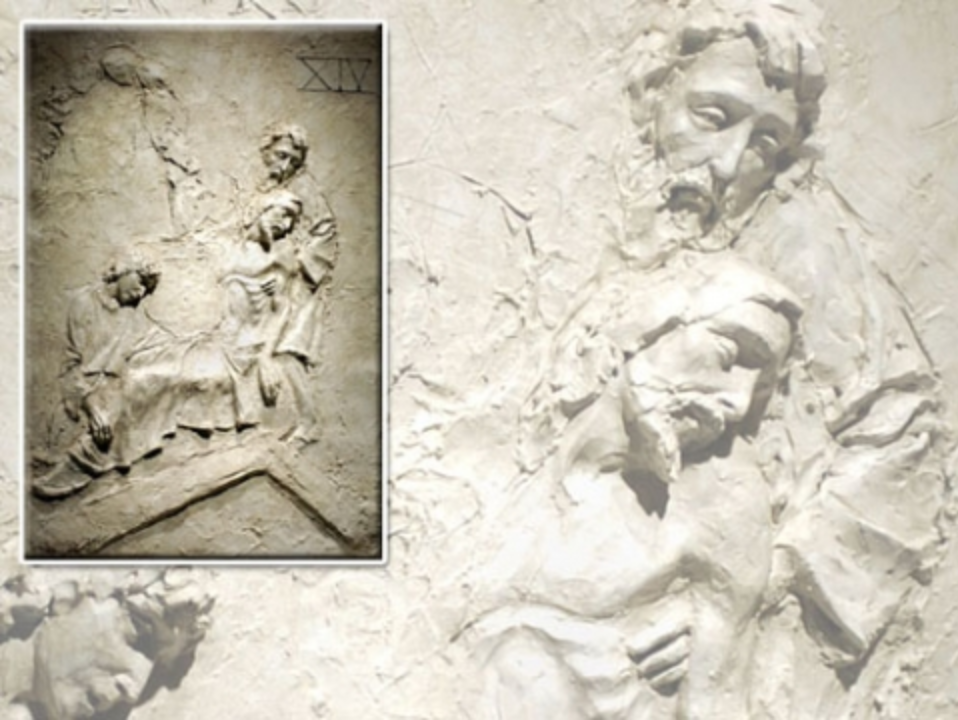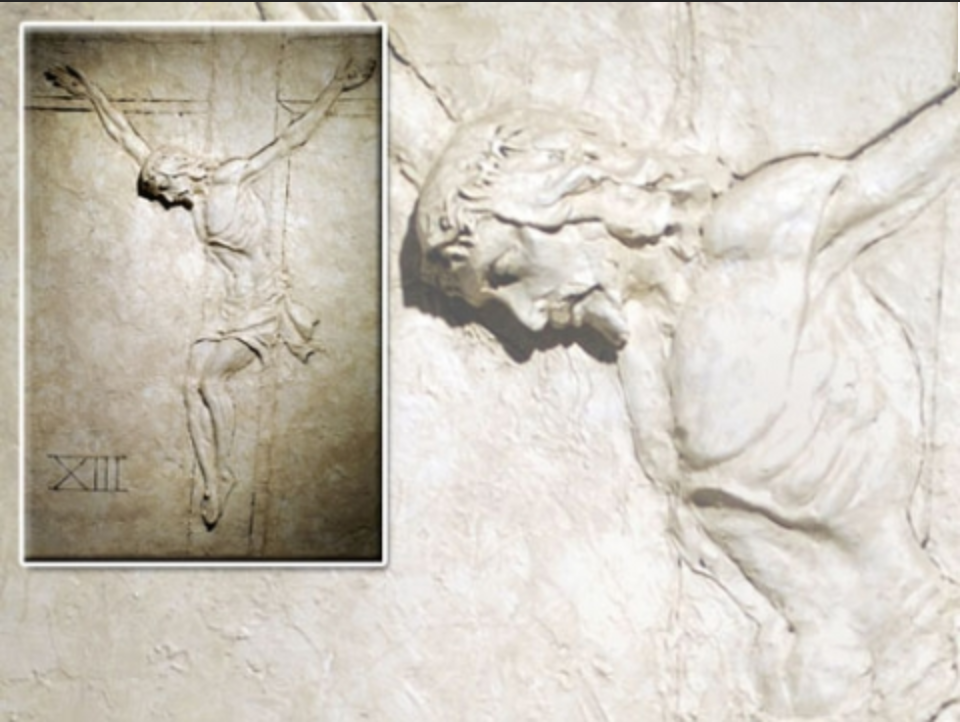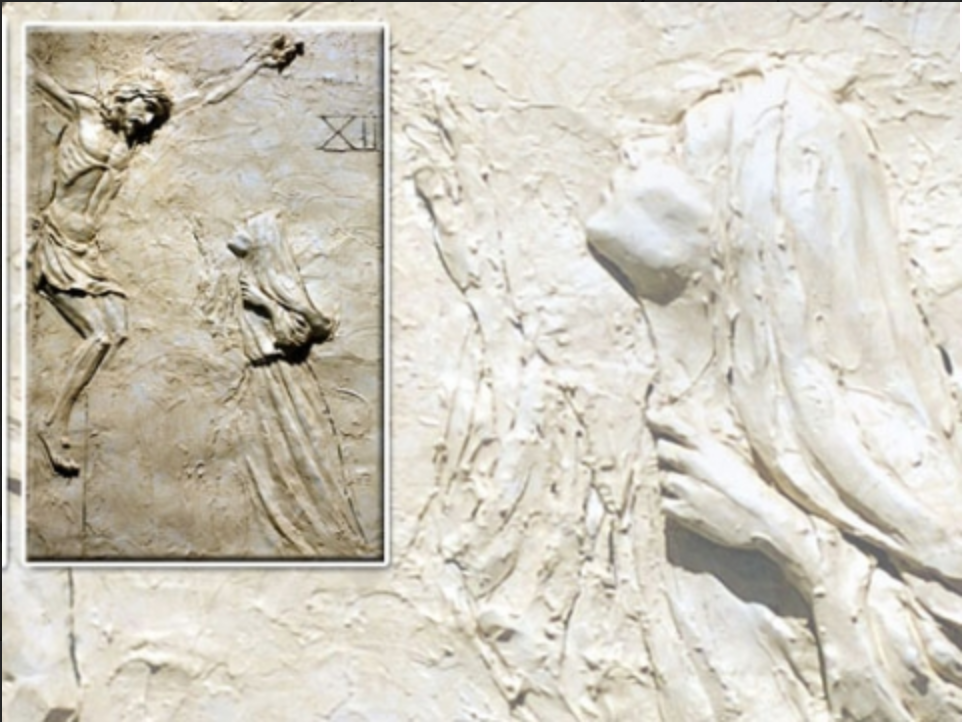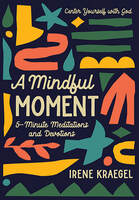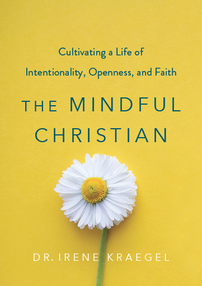This is what the Sovereign LORD says to these bones: I will make breath enter you, and you will come to life. Thank you for following along with the Scriptural Stations of the Cross, leading up to today's Easter Day celebration. You can revisit these Lenten reflections at any time by going back to the overview provided on March 5, 2023, and moving forward in blog entries from there. I pray that you have been blessed as you have reflected on the Passion of Christ and that you experience glimmers of God's joy as you ponder his life-giving Resurrection! Today's entry is an excerpt from page 86 of A Mindful Moment: 5-Minute Meditations and Devotions (Zondervan, 2022), written with teens in mind but appropriate for adults too! ... Reflection You may have had times of feeling dead in your spirit—seasons of sadness or depression, or grief over the loss of someone (or something) important to you. You may even have responded to this heavy suffering with a loss of the desire to live. God is all about restoring life. In this story [from Ezekiel 37], he gives the prophet Ezekiel a vision of dry bones, asking “Can these bones live?” While the most logical answer would have been no, God is all about life, and his answer was “yes.” He attached tendons to the bones, added some flesh and skin, and breathed life into those dead bodies. And voilà, they were alive! A weird and also super cool metaphor for how serious God is about resurrection. Deadness is no match for him because he IS the breath of life. You don’t have to resurrect yourself when you’re feeling dead or deflated. God will do that. You’ll sometimes have to wait and hope, and you’ll sometimes wonder if it’s possible, but God is all about life (your life), and he will bring resurrection to pass. Christian Mindfulness Practice Following [a] breathing space guide…, notice the breath in your body which is God’s breath, handed down since the beginning of human history. God is breathing life into you, and he will continue to do so. When you are finished, jot down some observations in your journal.
0 Comments
When it was evening, there came a rich man from Arimathea named Joseph, who was himself a disciple of Jesus. He went to Pilate and asked for the body of Jesus; then Pilate ordered it to be handed over. Taking the body, Joseph wrapped it [in] clean linen and laid it in his new tomb that he had hewn in the rock. Then he rolled a huge stone across the entrance to the tomb and departed. (This post is the last of a Lenten series on praying the Stations of the Cross - a devotional practice that is said to have started with Mary after the death and resurrection of Jesus. To start at the beginning, see the overview provided on March 5, 2023, and then go from there.) Reflection The people who are following Jesus attentively (like Joseph of Arimathea) get to participate as helpers in Kingdom work. Sometimes we’re not sure what God is up to, and we don’t yet see any resurrection happening or even know it’s a possibility. Joseph shows us how to use that time of uncertainty – see, advocate, care, tend, show respect and compassion, and give of our resources for others. We won’t be disappointed. This period of waiting in between death and resurrection is so challenging. Even when Jesus prepares us ahead of time for the uncertainty, we still don’t know what’s going on. We may not even be aware that anything is going on, and we don’t know what we’re missing until we look back later to see. But God is at work in the quiet, full of mystery, and we can never know it all. In this particular moment of quiet, we now know that a great spiritual shaking up was occurring as Jesus descended to hell to proclaim life-giving deliverance to the dead. What a trip that must have been! (I have questions for God about that...) It is our deaths and our letting go that bring new life. Wait for it. When all seems lost, be ready to learn how everything has actually been found. Even when it’s dark. And in the meantime, be like Joseph and lend a hand to the kingdom work in whatever way you know how. You won't be disappointed in the end! A note about mindfulness Mindfulness practices help us accept the uncertainty of waiting when things seem dark, hard, and hopeless. They build resilience, teaching us to open up to what is happening instead of resisting out of fear. In this way, mindfulness can be used by Christians who seek openness to what God is doing in times of dark uncertainty – it can help us work with God in the midst of the quiet instead of against him. (For a list of mindfulness practices that help to stay engaged and attentive when things are uncertain, check out the Guides for Practice available here.) Wrapping up the stations Thank you for reflecting and praying with me this Lenten season through the Stations of the Cross. We've reached the final station, and it's time now to be quiet in the grief and awe of Christ's sacrifice for us. At the same time, Christians are people who know resurrection is on the way - so I hope you'll meet me back here on Easter Day to celebrate our God who is all about life. See you then! It was now about noon and darkness came over the whole land until three in the afternoon because of an eclipse of the sun. Then the veil of the temple was torn down the middle. Jesus cried out in a loud voice, “Father, into your hands I commend my spirit”; and when he had said this he breathed his last. (This post is part of a Lenten series on praying the Stations of the Cross - a devotional practice that is said to have started with Mary after the death and resurrection of Jesus. To start at the beginning, see the overview provided on March 5, 2023, and then go from there!) Reflection Jesus had once said “Give to Caesar what is Caesar’s and to God what is God’s” (Mark 12:17). Now, he gives his earthly body back to the earth and his Spirit back to his Father God. As it is for us too, God had been at work in the earthly body, but we all return our bodies back to the earth eventually and surrender our spirits back to the Father. Here at Station XIII, there is some relief that the pain of Jesus’ dying is over, some peace in surrender. It’s okay to feel relief when the pain stops. And yet there is so much more than the end of physical pain here. From the moment of his conception in Mary’s womb, Jesus’ whole earthly life had been all about breaking down the division between God and humanity. He was creating access for us to God, right here in our earthly existence. That accessed was finalized in this moment of his death with the tearing of the temple curtain. No more division between God and us – we’re invited to walk right into the inner sanctum. The emotional darkness for Jesus’ disciples must have been profound as he died. It is so notable that they are barely mentioned through this whole Passion story, including this most important moment of Jesus’ sacrifice. Where were they? Hiding and afraid…hopeless and confused…struggling to believe God could still be with them when powers and crowds so clearly were not…? They could not be ready for this until the Spirit came later – they needed power beyond themselves, both to bear the grief and also to see the glory to come. Were the disciples still subscribing to a “winner takes all” attitude, able only to see this as a fight they had lost? With their leader humiliated and put to death, they felt unsafe, rejected, and even embarrassed. But those who stayed with Jesus until the end (the Marys and John were there) were not out to win, just to be close to Jesus. They loved him, and they stayed in connected relationship with him even in the moment of his death. Am I more drawn to winning or to abiding? A note about mindfulness The confusion of our circumstances can distract us from the work God is doing beneath the surface. Showing up fully in the present moment, no matter what we feel, is the first step in abiding with Christ. Mindfulness can help us show up fully for both the crucifixion and the resurrection to come, giving us glimmers of what God has in store for those who persevere through life’s trials. (For a list of mindfulness practices that help you abide where Jesus is, in the present moment, no matter what you are feeling, check out the Guides for Practice available here.) Standing by the cross of Jesus were his mother and his mother's sister, Mary the wife of Clopas, and Mary of Magdala. When Jesus saw his mother and the disciple there whom he loved, he said to his mother, “Woman, behold, your son.” Then he said to the disciple, “Behold, your mother.” And from that hour the disciple took her into his home. (This post is part of a Lenten series on praying the Stations of the Cross - a devotional practice that is said to have started with Mary after the death and resurrection of Jesus. To start at the beginning, see the overview provided on March 5, 2023, and then go from there!) Reflection From the beginning of her journey as a mother to this bitter end, Mary was always alone in some ways. Hearing the message of the angel at the Annunciation, outcast in a stable at the time of Jesus’ birth in Bethlehem, fleeing to Egypt as a refugee, and knowing all along of this painful moment to come (“a sword will pierce your own soul”) – Mary had carried and cared for the physical body of God, and she was here at the cross as he passed back to Spirit, watching her son’s brutal murder. What a rough road of motherhood. Mary was also never alone. Jesus had a deep connection with his earthly mother who had attended so faithfully to his needs throughout his time in a human body, and he attended faithfully and tenderly to her needs in this moment. He knew she had loved him well, as had his disciple John - this was evident in that they were both with him at the time of his death (along with the other Marys) - and he knew they could love one another well. He facilitated connection and care, as he loves to do. These types of relationships matter to God. Where is Christ asking me to see and care for those who have served him faithfully? Do I see those who have poured themselves out, like Mary, to follow Christ’s call of love and surrender? Do I trust that Jesus will provide for me too if I give him my all, as Mary did? He is our true security, and he always provides. A note about mindfulness Receiving care requires us to show up and stay present for the long haul like Mary did, even when the going gets tough. Mindfulness is a practice that helps us to be present. This allows us to enter into the connections created for us by God. He never leaves us alone or forsaken. (For a list of mindfulness practices that help you stay present to God and open to connections with those God puts in your circles, check out the Guides for Practice available here.) |
Author
I am Irene Kraegel. I am licensed as a clinical psychologist and teach mindfulness on a faith-based university campus. I practice mindfulness because it opens me up to God (a.k.a. brings joy). I am writing here in hopes of sharing some of my experiences and thoughts related to the practice of mindfulness in the life of a Christian. Thanks for reading! Books
Blog archives
December 2023
|
